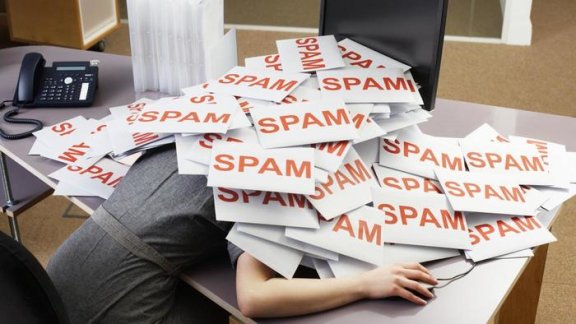Best Practices for Dealing with Spam

Most people these days have e-mail. We all know that having email means that we also have SPAM! What is spam? Spam is any email message that you did not sign up to receive! Simple, right? I wish!
Why do I receive more spam now?
You may have noticed that the level of spam you receive has increased. Well, the practice of sending these unwanted emails is more common and spammers have adapted their practices!
Email spam lists are often created by scanning, stealing mailing list addresses, or by searching the web for addresses. Online directories are another source of e-mail addresses. The more internet activity you participate in with your email address, the more likely you’ll end up in a spam list.
Some people prefer to have two email addresses – one to sign up for online accounts and one for personal use. This may help reduce the amount of spam.
What do you do with spam?
- Don’t reply to the message. This can cause all original addressees to receive the reply. Mailing lists can explode into thousands of recipients.
- Don’t respond to “instructions to remove me from the mailing list”. Most often, this will result in a bounced (rejected) mail message to you. It may also result in hardening your address onto these lists, as it serves as a confirmation that your account is active and the mail is being read. For advertising purposes, this makes your address more valuable.
- Report the spam – You can forward the email to the FTC monitored e-mail spam@uce.gov and they will be flagged.
- You can also mark the email as SPAM so that sender will be automatically filtered to your junk folder in the future.
- Make sure you are moving/marking emails as spam instead of just deleting them.
Still getting unwanted emails?
Normally, spam is filtered in your inbox to a specific spam or junk folder. This means you won’t have to even think about it! However, phishing campaigns are becoming increasingly targeted and sophisticated, which can result in spam messages mistakenly arriving in the inbox.
Sometimes, you may end up signing up to receive emails without noticing. Keep an eye out for check boxes that say things like ‘subscribe’ or ‘sign up for updates’ because it is common practice to automatically have this checked when creating accounts! Unchecking this box will reduce clutter.
Most importantly, you may receive malicious viruses and malware through spam messages. So best practice is to never click a link or download from someone you don’t trust!
If you do accidentally click a link or download a file that is dangerous – it is best to have great antivirus software installed on your computer. Not sure what a great antivirus may be? Well, we did the research for you! The award-winning Bitdefender is included with any Brainiacs subscription on up to 3 devices.
So finally, just remember: click cautiously, mark as spam and if all else fails – call a Brainiac! Buckeye Brainiacs are available 24/7 at 419.724.9888 to help you.
Also, if you haven't heard about our Brainiacs workshops, check them out here: www.buckeyebroadband.com/workshops. We even offer a special Spam workshop that you can attend to get some answers to any questions we may not have answered here! So, we will see you there!

